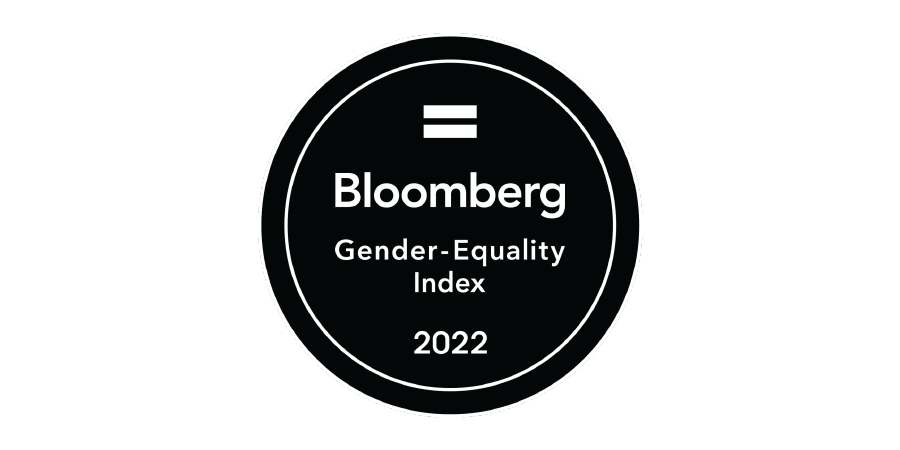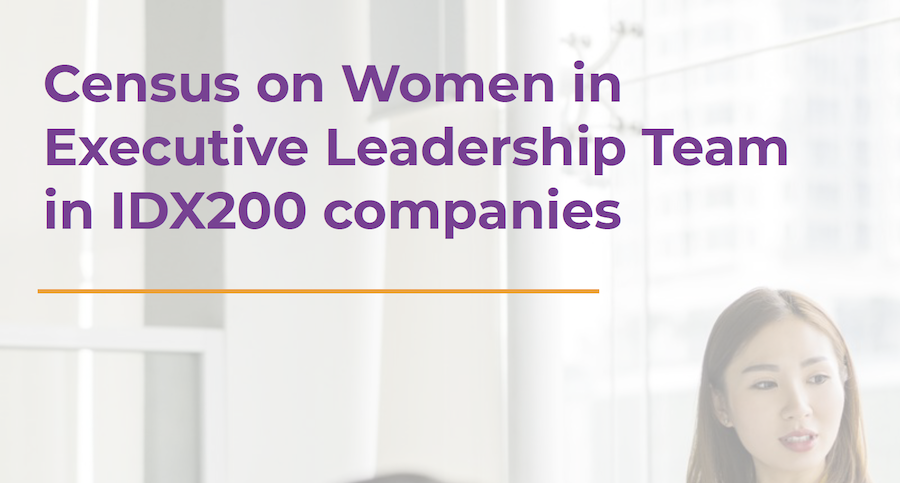
Tira Austenite Promoting Women’s Leadership in a Male-Dominated Industry
December 13, 2023
Despite Working from Home, Sexual Harassment Is Still Frequent During the Pandemic
December 13, 2023Bloomberg announced that 418 companies representing a combined market capitalization of USD16 Trillion and headquartered in 45 countries and regions are included in the 2022 Bloomberg Gender-Equality Index (GEI) released on January 26th, 2022. Of these 418 companies, 41 percent are based in North America, 36 percent are based in Europe, Middle East and Africa, 16 percent are based in Asia-Pacific, and 7 percent are based in Latin America.
A large number of companies disclose their data using the GEI Framework and generate 71 percent overall GEI scores, 96 percent average disclosure score, and 60 percent average data excellence performance score across the five key pillars, detailing 51 percent score of female leadership & talent pipeline, 62 percent average score of equal pay and equal pay parity, 68 percent average score of inclusive culture, 66 percent average score of anti-sexual harassment policies, and 50 percent average score of pro-women brand.
“The Bloomberg Gender-Equality Index recognizes companies that are maintaining a strong focus on providing an inclusive work environment that supports the evolving needs of employees and retains the competitive strengths gained through gender diversity, which is increasingly critical in this challenging business environment,” said Peter T. Grauer, Chairman of Bloomberg.
Closing the Gap
On average, 78 percent companies have a direct strategy for recruiting more women. They believe that having a female leader will tend to have a higher representation of women at all management levels within the company. As a result, the average GEI board consists of 31 percent of women and GEI member companies are having women at the level of Chief Executive Officer (7.5 percent), Executive (23 percent), Senior Management (29 percent), Middle Management (38 percent), and Entry-Level Positions (50 percent).
“Today’s business leaders have the opportunity to drive progress on gender equality for years to come,” said Patricia Torres, Global Head of Bloomberg Sustainable Finance Solutions at Bloomberg.
Having a female leader is also able to close the gender pay gap because companies with a higher percentage of female executives are more likely to conduct a gender-based compensation review. So that female workers being compensated fairly for the same positions and responsibilities as men. In this 2022 GEI report, the wage gap has decreased in scores from 21 to 19.
Inclusive Culture
The average inclusive culture score in the 2022 GEI report increased 15 percent with the three sectors having the highest inclusive culture scores, namely the financial sector (74 percent), the communication sector (71 percent), and the technology sector (71 percent).
Companies are committed to building a more inclusive work culture that all employees can thrive. Steps they have taken to support this commitment include requiring managers to complete annual gender bias training, retain employees who return after maternity leave, offering on-site lactation rooms, and providing childcare subsidies or other financial support.
Anti-Sexual Harassment Policy
This pillar assesses the strength of the company’s anti-sexual harassment policy and the procedures for handling employee claims. There are 415 companies that disclose this information and 55.4 percent require anti-sexual harassment training to be conducted annually. Meanwhile, 39 companies still require that all anti-sexual harassment claims be taken private.
Pro-Women Brand
In this pillar, GEI measures how a company is perceived by stakeholders considering factors such as its supply chain, products and services, how women are portrayed in advertising and external support for women in the community.
Effects of the COVID-19 Pandemic
The Covid-19 pandemic has led companies to develop various policies and practices to maintain workforce and businesses, such as 99 percent of companies maintained or enhanced flexible working conditions to support the transition to remote work, 94 percent of companies offered support services ranging from personal protective equipment (PPE) for essential employees and monetary support for ergonomic office supplies to a variety of consultation services supporting mental health, and 76 percent of companies offered or enhanced their paid time off policy for bereavement.
Due to the burdens imposed by COVID-19, return to work programs after a career break are more critical than ever. However, the data shows that although these programs are available, women re-entering the workforce are still less likely to find themselves in pipeline positions. The challenge for companies in turn, is not only to recruit women after a career break, but invest in upskilling.
From the data presented in Bloomberg’s 2022 Gender Equality Index, we can learn about the gender-related practices and policies of public companies around the world and the impact of their efforts. Download the full report at the link below.
Source:
Bloomberg’s 2022 Gender-Equality Index Shows Companies Increasingly Committed to Reporting ESG Data. Bloomberg. https://www.bloomberg.com/company/press/bloomberg-2022-gei/ (Accessed 21 February 2022).
2022 Bloomberg Gender-Equality Index Data Sheet. Bloomberg. https://assets.bbhub.io/company/sites/46/2021/01/Bloomberg_GEI_DataSheet.pdf (Access 21 February 2022)





